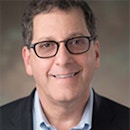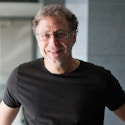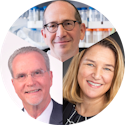By clicking to watch this video, you agree to our privacy policy.
On April 10, 2018, Matthew State reviewed the progress that has been made in autism genetics over the past 10 years and the role that the Simons Simplex Collection (SSC) played in this (r)evolution. He also addressed the potential contribution of ongoing genomic studies including whole-genome sequencing as well as the challenges and opportunities of leveraging the genetic findings to identify pathophysiological mechanisms.
This presentation was given during the SFARI April 2018 science meeting.
About the Lecture
The Simons Simplex Collection (SSC) has been the single most important development in the genetics of autism spectrum disorders (ASDs) in the past decade. The combination of the exquisitely designed and assessed ASD cohort, a highly productive research strategy focusing first on de novo mutations, and an ethos of data sharing and collaboration has propelled the ASD field into an era of reliable and reproducible gene discovery. This critically important effort is ongoing and has already led to the accumulation of dozens of definitive molecular clues to the etiology of social disability. It has also set the stage for the elaboration of the pathophysiology of ASD and the development of novel therapeutic strategies.
In this presentation, Matthew State briefly reviewed the dramatic progress in ASD genomics over the past 10 years and the role that the SSC has played in this (r)evolution. He also addressed the potential contribution of ongoing genomic studies including whole-genome sequencing as well as the challenges and opportunities of leveraging the genetic findings to identify pathophysiological mechanisms.




